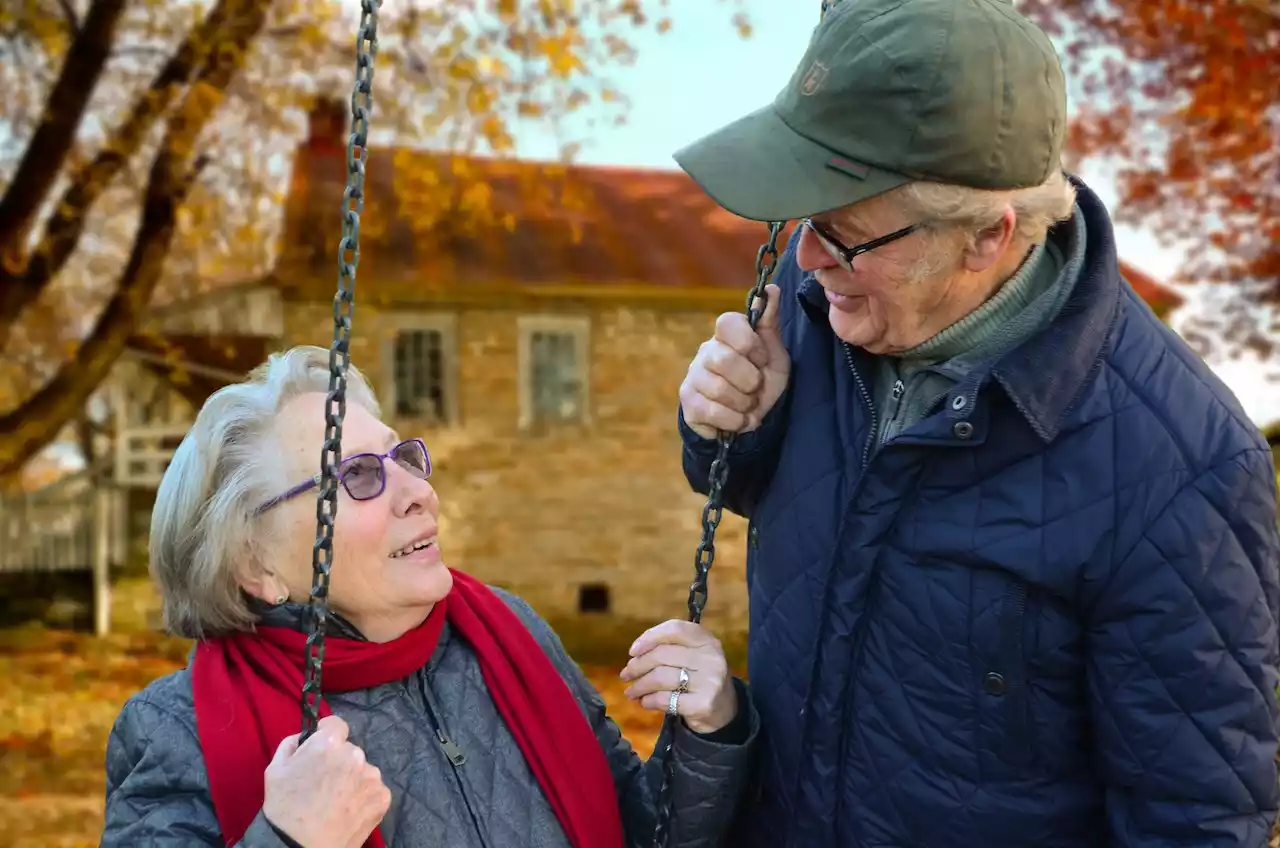Retirement marks a significant milestone in one’s life, signaling the transition from a career-focused existence to a more leisurely pace. For many individuals, accepting retirement can evoke a mix of emotions, from excitement about newfound freedom to apprehension about the unknown. It’s a time to reflect on accomplishments, savor moments of success, and prepare for a new chapter ahead.
Accepting retirement involves not just a change in daily routine but a shift in mindset. It’s about embracing the opportunity to pursue passions, spend time with loved ones, and explore new interests. While it may bring challenges, it also opens doors to personal growth and self-discovery. Ultimately, accepting retirement is about recognizing that this phase of life offers a chance to redefine one’s purpose and find fulfillment in different ways.
Understanding Retirement
Retirement, often viewed with trepidation by many, can transform into a truly enriching and fulfilling chapter of life if approached with purpose and mindfulness. It’s a unique phase that offers the opportunity to reconnect with oneself, rest, forge new friendships, and savor life’s moments, all while prioritizing self-care to fully relish the joys of aging gracefully.
At its core, accepting retirement represents a shift from the demands of a career-centric existence to a more leisurely rhythm. It’s a chance to step back from the hustle and bustle of daily work routines and invest time in activities that bring joy and fulfillment. Whether it’s pursuing long-held passions, embarking on new adventures, or simply enjoying quiet moments of reflection, retirement opens doors to experiences that may have been elusive during the busyness of working life.
One of the most significant aspects of retirement is the opportunity to reconnect with oneself. It’s a time to explore personal interests, hobbies, and goals that may have taken a backseat during years of professional commitment. By delving into these areas, retirees can rediscover parts of themselves, fostering a sense of self-discovery and renewed purpose.
Rest also plays an important role in the retirement journey. After years of dedicated work, taking the time to rest and recharge is essential for overall well-being. It allows retirees to rejuvenate their minds and bodies, enabling them to fully engage in the activities and experiences that bring them joy and satisfaction.
Furthermore, retirement opens doors to new social connections and relationships. Whether through community groups, volunteer work, or shared interests, retirees have the opportunity to form meaningful bonds with others who share similar passions and values. These connections not only provide companionship but also contribute to a sense of belonging and fulfillment during this stage of life.
Central to accepting retirement is a commitment to self-care. Prioritizing physical health, mental well-being, and emotional balance ensures that retirees can enjoy life to the fullest and make the most of this transformative period. By maintaining a healthy lifestyle, seeking support when needed, and nurturing positive relationships, retirees can create a foundation for a vibrant and fulfilling retirement journey.

Reasons for Accepting Retirement
Accepting retirement can be a fulfilling experience for individuals looking to transition into a new phase of life. Here are some compelling reasons why accepting retirement can lead to a rewarding chapter:
Flexibility in Lifestyle
Retiring allows individuals to have more control over their schedules, enabling them to pursue hobbies, travel, or spend time with family and friends at their leisure.
Health and Well-being
Stepping away from a demanding work environment can reduce stress levels, improve physical health, and promote overall well-being, leading to a healthier and more relaxed retirement.
Personal Growth
Retirement presents an opportunity for individuals to focus on personal growth, explore new interests, and engage in learning experiences that may not have been feasible during their working years.
Enhanced Social Connections
With additional free time, retirees can nurture existing relationships and cultivate new social connections, fostering a sense of community and belonging that contributes to a fulfilling retirement.
Exploration of Passions
Retirement offers the chance to reignite passions or discover new ones, whether through volunteer work, artistic pursuits, or engaging in activities that bring joy and fulfillment.
Financial Security
Adequate retirement planning can provide a sense of financial security, ensuring that retirees can enjoy their newfound freedom without the stress of financial uncertainties.
Time for Reflection
Retirement allows individuals to reflect on their past accomplishments, celebrate their successes, and set new goals for the future, promoting a sense of fulfillment and purpose in this new stage of life.
By accepting retirement and embracing the opportunities it brings, individuals can embark on a journey of self-discovery, growth, and fulfillment, making the most of this new and exciting phase of their lives.

Strategies for Mental Well-being in Retirement
To ensure a smooth transition into retirement and maintain mental well-being during this phase, individuals can adopt various strategies. Adapting to a new routine, engaging in social activities, and pursuing personal interests are key components to support a fulfilling retirement experience.
- 1. Establishing a Routine: Creating a daily schedule that incorporates physical exercise, hobbies, social interactions, and relaxation can provide structure and purpose in retirement. A consistent routine can help individuals feel productive and maintain a sense of accomplishment.
- 2.Connecting with Others: Maintaining social connections with friends, family, and community groups is essential for mental well-being. Engaging in social activities, volunteering, or joining clubs can foster a sense of belonging and prevent feelings of isolation.
- 3. Exploring New Interests: Retirement offers the opportunity to explore hobbies and interests that may have been set aside during a career. Trying new activities, learning new skills, or pursuing creative outlets can stimulate mental engagement and promote personal growth.
- 4. Practicing Mindfulness: Incorporating mindfulness practices such as meditation, yoga, or deep breathing exercises can help reduce stress, enhance emotional well-being, and improve overall mental health in retirement.
- 5. Embracing Community at Retirement Homes: Retirement homes in Mexico offer an excellent opportunity to connect with like-minded individuals and build meaningful relationships. These communities provide a supportive environment where residents can engage in social activities, share experiences, and form lasting friendships. Whether participating in group outings, cultural events, or recreational programs, retirement homes encourage a sense of camaraderie and social connection, enhancing overall well-being and quality of life.
By implementing these strategies, individuals can proactively support their mental well-being in retirement, navigate the transition effectively, and accepting retirement with confidence and resilience.

Health and Wellness in Retirement
In retirement, individuals often experience a transformation not only in their daily routines but also in their overall well-being. Embracing the concept of retirement and the lifestyle changes it brings can significantly impact one’s health and wellness. Adapting to this new phase of life requires a proactive approach to maintaining both physical and mental well-being.
1. Regular Exercise Routine
Engaging in regular physical activity is crucial for promoting overall health in retirement. Incorporating activities like walking, swimming, or yoga into daily routines can help in staying active and maintaining strength and flexibility. It’s essential to find enjoyable forms of exercise that align with personal preferences and limitations.
2. Healthy Eating Habits
Proper nutrition plays a vital role in sustaining health during retirement. Consumption of a balanced diet rich in fruits, vegetables, whole grains, and lean proteins can support overall well-being. Maintaining healthy eating habits can contribute to increased energy levels, better weight management, and improved long-term health outcomes.
3. Scheduled Health Check-ups
Regular health check-ups and screenings are essential for monitoring health status and addressing any potential issues promptly. Visiting healthcare providers for routine examinations, vaccinations, and health assessments can aid in early detection of health conditions and facilitate timely interventions.
4. Mental Health Support
Prioritizing mental health in retirement is as crucial as physical well-being. Engaging in activities that promote mental wellness, such as meditation, mindfulness practices, or joining social groups, can enhance emotional resilience and reduce feelings of isolation. Seeking professional mental health support when needed is a proactive step towards maintaining a healthy mindset.
5. Balanced Lifestyle Choices
Finding a balance between relaxation and engagement is key to overall wellness in retirement. Incorporating leisure activities, volunteer work, or pursuing hobbies can provide a sense of purpose and fulfillment. Maintaining a well-rounded lifestyle that includes social interactions and personal interests is essential for holistic well-being.

By focusing on health and wellness aspects, individuals can nurture their overall well-being, accepting retirement with positivity, and navigate the transition with resilience and vigor.








